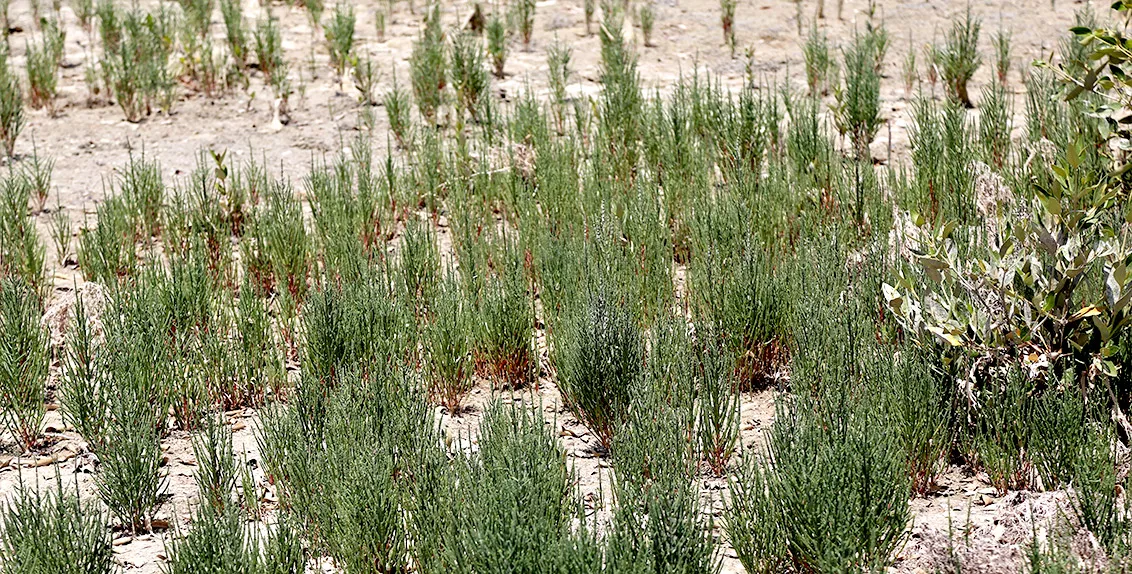New study finds brackish water best for Salicornia cultivation
20 January 2021
A recent study by a team of scientists from the University of Barcelona, Spain, and the International Center for Biosaline Agriculture (ICBA) has found that brackish water is the most suitable type of water for the cultivation of Salicornia europaea, a multipurpose salt-loving plant, in terms of biomass and seed production.
Published in Plant Science, a journal, the study assessed two ecotypes of Salicornia europaea that grow naturally in the coastal areas of the emirates of Ras al-Khaimah and Umm al-Quwain in the UAE. The seeds of both ecotypes were collected in 2016 and then multiplied in ICBA’s greenhouse facilities using brackish water with a salinity level of 25 deciSiemens per meter (dS/m).
During the experiments, scientists used three types of water for irrigation: fresh water (0.3 dS/m), brackish water (25 dS/m) and sea water (40 dS/m). They also looked into the effect of hypersaline water (80 dS/m) on seed germination. The seeds which were given fresh water and brackish water had the highest germination rates, while use of sea water reduced the germination rate by half, and hypersaline water caused it to drop almost to zero. These results show that brackish water produces the best results in terms of biomass and seed yields.
Not only does the study shed light on phenotypic variability among Salicornia europaea ecotypes and provide valuable information about their agronomic and morphological traits, but it also contributes to a better understanding of this species’ physiological response to salinity.
It also reveals novel aspects such as the effect of growing conditions on seed germination and the role of potassium ion (K+) during growth in response to increasing salinity of irrigation water. The study also indicates that irrigation conditions do not affect the amino acids and protein content of Salicornia europaea, which is cultivated as an oilseed and fodder crop in various parts of the world.
More importantly, the study shows that Salicornia europaea could be used as an alternative crop for cultivation by smallholder farmers in salt-affected areas. This would help to reduce their vulnerability to the effects of salinization on agriculture and food security.
For many years, scientists at ICBA have investigated how different salt-tolerant crops such as Salicornia can help to ensure sustainable food production and improve livelihoods in marginal environments. As part of this work, they have carried out extensive research on Salicornia since 2011. During several multi-year field trials at ICBA’s experimental station in Dubai, they have evaluated more than 50 different Salicornia genotypes under highly saline conditions and selected the top high-yielding ones.











